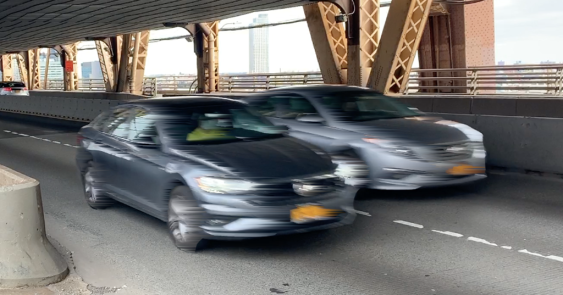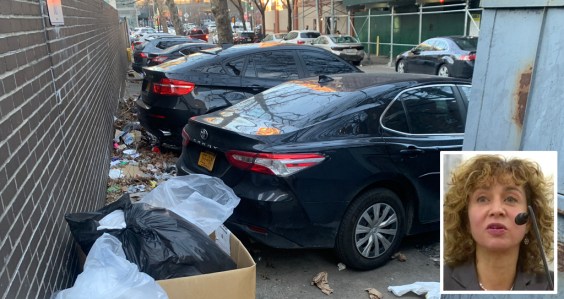A new report written by the Victoria Transport Policy Institute's Todd Litman for the American Public Transit Association [PDF], the trade organization for the nation's transit agencies, reminds us that one of the most valuable benefits of transit is to our health. Summarizing the state of research in the field, "Evaluating Public Transportation Health Benefits" lays out the basic fact that increasing transit use is an easy way of preventing thousands of unnecessary deaths each year.
The damage that our current transportation system does to our health is staggering. Each year, 40,000 Americans die in traffic crashes, according to the report, the equivalent of 1,186,070 years of life lost. Estimates attribute an equal number of deaths to motor vehicle air pollution, which tends to affect an older population. The number of deaths attributable to a third category of health impact, the sedentary lifestyle driving promotes, wasn't estimated.
Importantly, the report points out that these tens of thousands of deaths, along with a number of injuries and illnesses an order of magnitude larger, aren't the result of how we drive but of how much we drive. For example, the United States has by far the highest traffic fatality rate among its peer countries per capita, but not per mile driven (that title goes to Ireland). Americans die more because we drive more, not because we drive worse.
The good news is that transit provides proven health benefits. Public transit and transit-oriented development both reduce air pollution, research shows. Transit also increases physical activity. One of the studies detailed in Littman's report found that Americans walk an average of six minutes per day overall but that transit riders walked an average of 19 minutes per day, pretty close to the medically recommended 22 minutes.
Put those together, and it's no surprise that locations ranked higher on a "sprawl index" have higher rates of asthma, diabetes, hypertension, and cancer after controlling for a slew of demographic factors.
And of course, transit is very unlikely to crash; overall, it has only one-twentieth the passenger fatality rate of automobile travel.
Finally, Littman offers some guidance for those looking to turn these health benefits into a monetary number, often a cold necessity for decision-makers constantly asked to justify the large price tag of a transit project. A variety of tools, like ICLEI's Active Transport Quantification Tool or Littman's own Transit Health Benefits Calculator [.xls] can help turn important health benefits into easy-to-compare numbers.
One caveat: This report is an APTA project and the goal is to lay out the benefits of using transit, not necessarily to paint the fullest picture. The report's argument that four percent of American children were unable to get important medical care because of inadequate treatment, for example, skips over the fact, found in the cited study, that those children primarily lived in rural areas that are often poor targets for transit. The health benefits of transit, as catalogued here, are completely real, but as you read the report, take it with a grain of salt."






